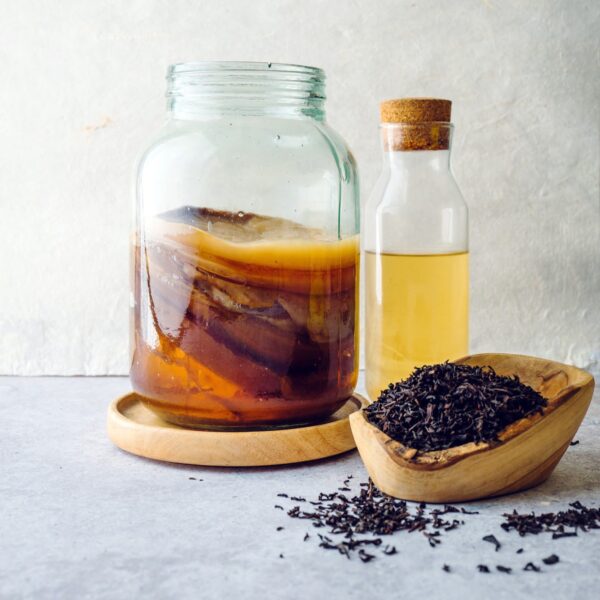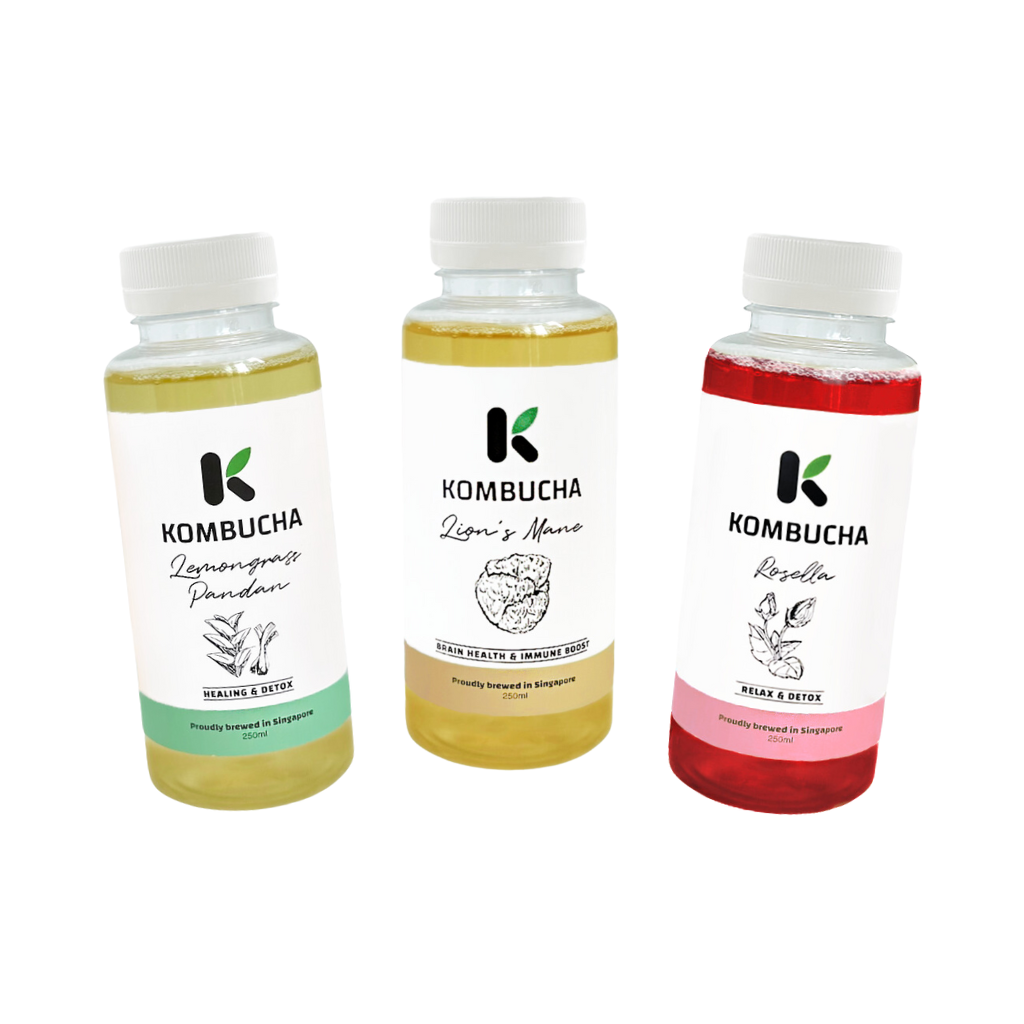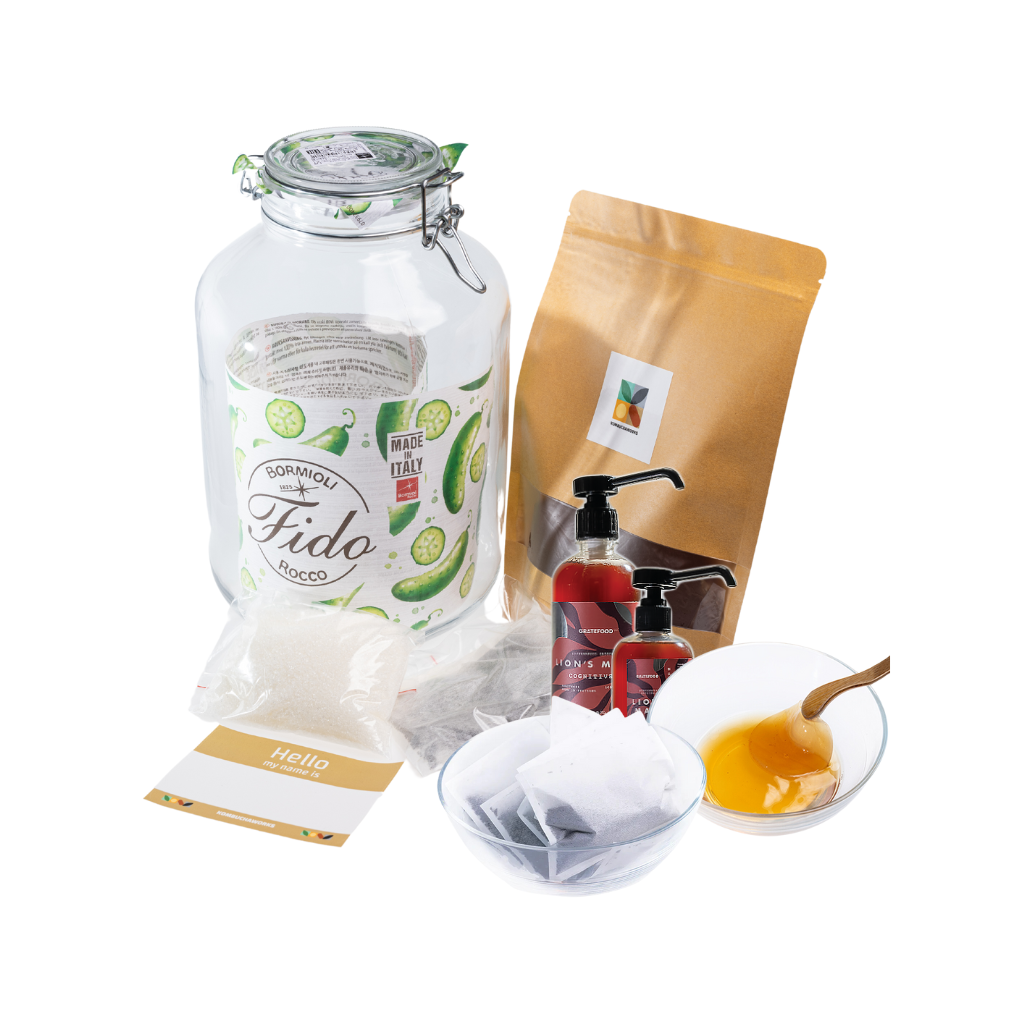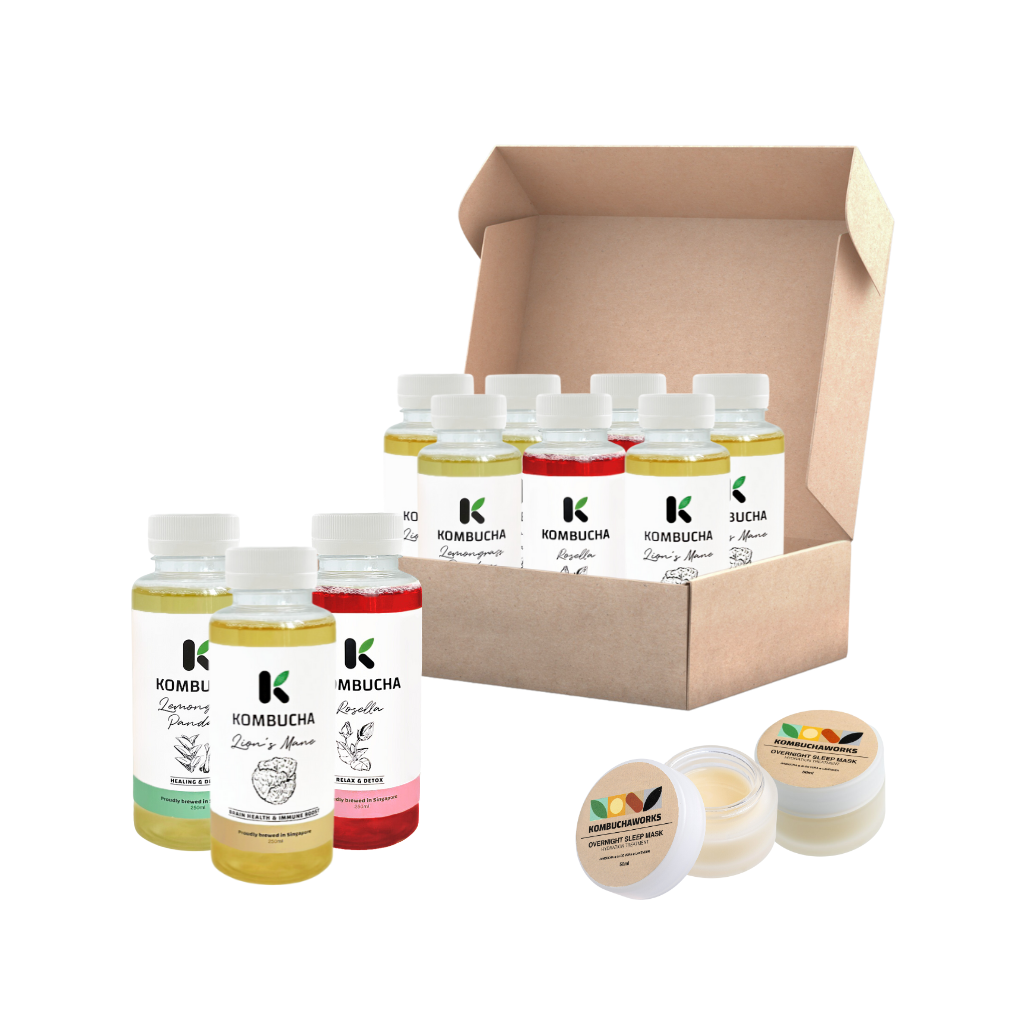If you're always looking for new ways to eat healthy and stay active then you will love Kombucha. Kombucha is a fermented tea that's been around for centuries but gained popularity in the United States in the 80’s. This refreshing and fizzy beverage is made by adding bacteria and yeast to sweetened tea in order to form a SCOBY (short for "Symbiotic Colony Of Bacteria and Yeast"). The SCOBY then produces probiotics, enzymes, amino acids, and folic acid as it slowly ferments over time — making kombucha an excellent way to get your daily dose of healthy bacteria! Read on for more information about the benefits of drinking kombucha regularly:
Kombucha is a fermented tea that is made with black tea and sugar
If you've heard of kombucha, but aren't sure what it is or how to make it, here are some basics:
- Kombucha is a fermented tea that's typically made with black tea and sugar. It can also be made with other teas--white tea or green tea are popular options--but black tends to be the most common.
- The fermentation process gives kombucha its distinctive flavor and effervescence (and makes it more acidic than your average cup of hot water). That said, some people like their brews on the less-fermented side; if this describes you, try shortening the fermentation period to only 7 days.
- Black tea is the most common tea used to make kombucha, but green tea and oolong are also popular. White tea doesn't have much caffeine, so it's not as commonly used in kombucha brewing.
- You can use any type of black or green teabags or loose leaves you like with the exception of decaffeinated varieties--they contain chemicals that will kill or damage\ your SCOBY!
The process of brewing kombucha is similar to brewing iced tea
The process of brewing kombucha is similar to brewing iced tea except that you add the live culture to start the brew. You brew a batch of tea with sugar, then add the SCOBY and let it ferment for about a week. During that time, you'll see bubbles forming on top and yeast (brown substance) forming at the bottom as it ferments into kombucha.
At this point you can either bottle your new batch or use some starter liquid from the current brew to create another one--this is called a "single brew”. If you choose this brewing method, make sure that every time you reuse any part of your culture (e.g., by adding old tea), the brewing vessel is washed well before adding the sweet tea and starter liquid!
Kombucha can also be used as an ingredient in other fermented foods like sauerkraut or kefir (a fermented milk drink).
The most common types of tea used in kombucha are black, green, oolong, and white
The most common types of tea used in kombucha are black, green, oolong and white. Black tea is the most common and produces a stronger flavor than most teas. Green tea is used when making Junbucha (fermented with honey). Green tea has a slightly lighter flavor and is more aromatic than black tea. Oolong has less caffeine than black or green teas but it still makes an excellent base ingredient for your brews! White teas have the least amount of caffeine out of all four types mentioned and hence may not be the best tea to use.
A SCOBY (pronounced skuh-bee) looks like a pancake or jellyfish when it's first formed but grows thicker as it ferments the tea mixture
A SCOBY (pronounced skuh-bee) is a Symbiotic Colony Of Bacteria and Yeast that forms on the surface of a sweet tea mixture. The Kombucha live culture will ferment the caffeine and sugar to produce carbonation, which makes your kombucha fizzy.
When you first make your kombucha, you'll notice something gelatinous floating on the surface of the liquid. This is your new SCOBY! It looks like a pancake or jellyfish when it's first formed but will grow as it ferments the tea mixture over time. The longer you let your batch ferment, the more acidic and alcoholic it becomes--and more delicious! You can even use this extra-fermented "booch" to start another batch or give away to friends who want their own SCOBYs too!
Though it contains sugar by nature, kombucha contains less sugar than most soft drinks and some craft beers
Though it contains sugar by nature, kombucha contains less sugar than most soft drinks and some craft beers.
The health benefits of kombucha are many--it can help with digestion, improve your mood and energy levels, boost immunity and even fight cancer. Kombucha also has a low glycemic index (GI), meaning it won't cause blood sugar spikes like other sweetened beverages do. However, there are some risks associated with drinking kombucha regularly: if you're sensitive or allergic to yeast, you may experience skin irritation or digestive distress from drinking this tea; pregnant women should avoid consuming kombucha during pregnancy.
The Kombucha fermentation process produces probiotics and enzymes that promote healthy digestion
Probiotics are good for your gut, immune system, mood and weight loss. They can also help with allergies.
Probiotics are good bacteria that live in your gut and aid in digestion. They play an important role in maintaining a healthy digestive system by promoting the growth of good bacteria while crowding out bad bacteria. Probiotics have been shown to improve symptoms of irritable bowel syndrome (IBS) including bloating, constipation, diarrhea, flatulence.
They may also help reduce lactose intolerance symptoms if you're drinking kombucha instead of milk or yogurt because it contains less sugar than those dairy products do. As an added bonus: Kombucha has been shown to reduce inflammation and improve skin conditions!
Kombucha is a great way to enjoy naturally sweetened fermented foods!
Kombucha is a great way to enjoy naturally sweetened fermented foods. Not only does it taste good, but it also offers many health benefits. It's a healthy alternative to soft drinks and beer for its fizzy nature, and it has probiotics and enzymes. You can also add fruits or herbs to your kombucha for a different flavor (we like to use Lemongrass and Pandan as it is not sweet).
If you are interested in trying kombucha or brewing your own kombucha, you can find them at our online store.
Click HERE for our brewing recipe.





